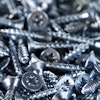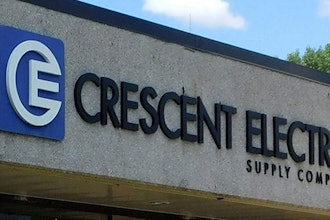BEIJING (AP) — China's December exports rose by double digits, possibly fueling tension with Washington ahead of Chinese President Hu Jintao's U.S. visit next week.
The country's politically sensitive trade surplus shrank to $13.1 billion, customs data showed Monday, but analysts said that decline was likely to be temporary and the gap should rebound later in the year.
Hu meets President Barack Obama on Jan. 19 and the White House says Obama will press him over currency controls that critics say are swelling China's trade surplus and wiping out jobs abroad. Voter anger over the large and rising U.S. trade deficit with China became an issue in October elections.
"Surely the ongoing Chinese surplus with the U.S. and the world will be a point of contention" during Hu's visit, said economist David Cohen at Action Economics in Singapore.
China's December exports rose 17.9 percent to $154 billion, down from November's 34.9 percent surge. Imports gained 25.6 percent over a year earlier to $141 billion, down from the previous month's 37.7 percent growth but reflecting China's relatively strong economic growth.
December appeared to be the highest monthly exports yet for China, which overtook Germany in 2009 as the world's biggest exporter, according to Cohen.
The trade surplus was the third-lowest monthly level in 2010. It was a 30 percent decline from the same month in 2009 and down sharply from November's $22.9 billion.
But the smaller surplus was due partly to a temporary spike in the price of imported oil and other commodities even though the amounts imported declined, said Mark Williams of Capital Economics. He said that effect should pass quickly.
"We expect China's surplus to rebound in 2011," Williams said in a report.
The decline from November's sharp trade growth was in line with forecasts by economists who said the jump was temporary and Christmas-related. December export growth was below the 20 percent forecast by many analysts but still reflected reviving global demand.
"Growth probably will be under 20 percent going forward, but something in this range is sustainable if the global recovery continues," said Cohen.
China's full-year trade surplus in 2010 was $190 billion, according to customs data, down 3 percent from 2009's $196.1 billion.
Exports rose 31.3 percent over 2009 to $1.58 trillion, while imports gained 38.7 percent to $1.39 trillion, the government reported.
UBS Securities is forecasting a Chinese trade surplus of $220 billion this year, even as stronger domestic consumer spending pushes up imports.
Beijing faces complaints that its rapid rebound from the global crisis has come partly at the expense of its trading partners, which are struggling to support economic growth.
Critics say the undervalued yuan gives China's exporters an unfair price advantage and hurts foreign competitors by making their goods more expensive in the Chinese market.
"The narrowing trade surplus last month is unlikely to subdue U.S. policymaker criticism of China's pro-exports policies," said Moody's Analytics economist Matt Robinson in a report.
Beijing promised more exchange rate flexibility in June and the yuan has risen by about 3.5 percent against the U.S. dollar since then. Analysts expect the currency to rise by about 5 percent this year, but that is too little for critics who say the yuan is undervalued by up to 40 percent.
Beijing also faces criticism that it is hampering access to its finance industries and is improperly supporting its fledgling producers of solar, wind and other renewable energy technology by shutting foreign suppliers out of government-financed projects.
The Obama administration filed a World Trade Organization complaint in December accusing Beijing of providing improper support to its producers of wind and solar equipment. It said that allows the Chinese companies to sell their goods abroad at lower prices, hurting U.S. and other foreign competitors.
In a move possibly timed to mollify American critics ahead of Hu's visit, the Chinese government announced last week that two U.S. investment banks, Morgan Stanley and J.P. Morgan, will be allowed to set up securities joint ventures in China.
But other Chinese moves also might aggravate criticism of its trade strategy.
Chinese state media reported last week that the government plans to build a complex near Bangkok to house thousands of Chinese exporters. An official of a Thai trade association said passing Chinese exports through Thailand might result in lower U.S. and European tariffs.


















